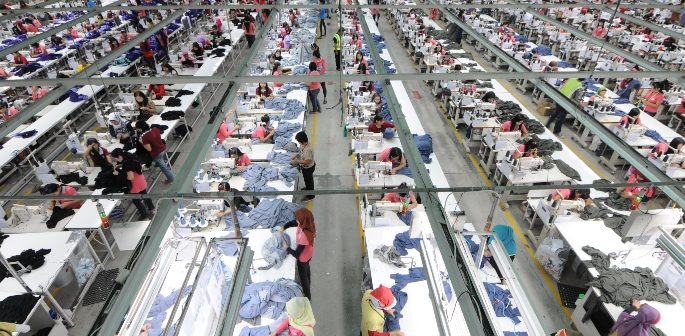"We're forced to stay late to finish it or they yell at us"
Indian factory workers supplying major brands have alleged that they are regularly exploited.
These brands are supermarket chains Marks & Spencer, Tesco and Sainsbury’s, and the fashion brand Ralph Lauren.
Women working at a Ralph Lauren supplier told the BBC they had been forced to stay overnight to complete orders, sometimes requiring them to sleep on the factory floor.
One woman who chose to stay anonymous for her own safety said in an interview:
“We’re made to work continuously, often through the night, sleeping at 3 am then waking up by 5 am for another full day.
“Our bosses don’t care. They’re only bothered about production.”

Workers at the supermarket supplier said they had been made to endure conditions which would be unacceptable for staff employed by the same brands in the UK.
Another woman added: “We don’t get toilet breaks, we don’t get time to drink water on shift. We barely get time to eat lunch.”
She claimed a manager would sometimes stand behind staff in the canteen and blow a whistle to send them back to work.
Another employee said staff were forced to work overtime and prevented from going home until extra work was finished.
“They’ve increased our workload. We’re forced to stay late to finish it or they yell at us and threaten to fire us. We’re scared as we don’t want to lose our jobs.”
The four brands supplied by the factories said they were concerned about the allegations put to them and would investigate.
The Indian factory workers all live in poverty in a rural area of South India.
The charity Action Aid, which supports more than 1,200 female garment workers across 45 villages in this specific region, stated that verbal abuse and poor working conditions were routine at the factories in question.
Allegations such as these are not confined to the garment industry.
Low wages and weak labour laws have long made India an attractive place for foreign brands looking to outsource work.
Unions are rare and virtually absent in the private sector, making informal and contract workers especially vulnerable.
While inspections are mandatory, rampant corruption and a poor system has meant that factories are rarely accountable for breaking the law.
The garment industry draws more attention because it’s driven by exports and counts some of the world’s biggest brands as among its clients.
India is the world’s second-largest manufacturer and exporter of garments after China.
A 2019 report stated that India’s garment makers directly employ approximately 12.9 million people in factories and millions more outside, including their own homes.
One woman who is responsible for supporting her family said:
“They ask us to work so late I can’t even feed my children at night. They shouldn’t treat us like slaves, they should give us respect.”

The UK brands associated with the factories accused of these horrendous allegations have all made statements on the matter.
Ralph Lauren said: “We require all of our suppliers to meet strict operating standards to ensure a safe, healthy and ethical workplace, and we conduct regular third-party audits at all factories.”
The company has assured that they will be conducting an internal investigation into the allegations.
However, the factory supplying the fashion brand denied the staff members’ allegations and said it was compliant with the law.
The three supermarket brands all said they were shocked to hear the reports and were collaborating to ensure the issues were remedied, in particular on excessive working hours.
Sainsbury’s said it was “insisting on a number of actions the supplier must take in order for us to continue to work with them”.
This includes taking immediate action and that the supplier must make commitments while the factory is monitored.
Tesco said: “We don’t tolerate any abuse of workers’ rights and fully investigated these allegations as soon as we were made aware. We were deeply troubled with what we found.”
Marks & Spencer said it “undertook an immediate unannounced audit” in the wake of the claims.
However, it admitted that it “identified overtime working practices that are not acceptable”, but disputed worker accounts about access to toilet breaks and water.
The company also said it had a “robust” plan in place and would be “undertaking regular unannounced audits to ensure its implementation”.
These kinds of brands do not own or operate factories in India, which creates distance between them and working conditions there.
When outsourcing to developing countries UK brands push for cheaper clothes which can leave suppliers with no choice but to cut corners to meet orders.
This is not the first allegation to horrendous working conditions in the garment industry and it seems it will not be the last.






























































